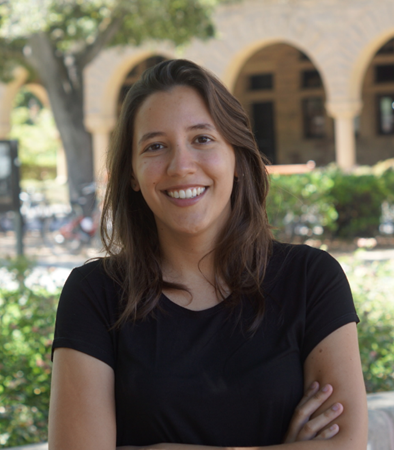You are here
EPDC Staff
 Carina Omoeva, Ph.D., Director
Carina Omoeva, Ph.D., Director
Dr. Carina Omoeva leads EPDC research and other analytic services and data management projects. Since joining EPDC in the spring of 2010, she has led research efforts in a range of domains, including education enrollment forecasting and cost projections, barriers for school participation for disadvantaged populations, the relationship between inequality in education and violent conflict, the impact of early marriage and childbirth on school attendance, as well as measurement and reliability issues pertaining to international education data, particularly on school exclusion. Dr. Omoeva serves in a technical advisory role in the design and implementation of monitoring and evaluation efforts on several FHI 360 Global Education projects. She holds a Ph.D. in Comparative Education from Teachers College, Columbia University and an Ed.M. in International Education Policy from the Harvard Graduate School of Education. Her previous work engagements include USAID Central Asia Regional Mission (Education) and NCREST Center at Teachers College, Columbia University, where she conducted data analysis on student achievement and school quality. Her dissertation focused on examining the relationship between student-centered instructional methods and learning outcomes in math and science.
 Wael Moussa, Ph.D., Research Associate
Wael Moussa, Ph.D., Research Associate
Wael contributes to EPDC’s work regarding issues of educational and economic inequality in developing countries, educational inequality and conflict, and provides technical support in FHI 360’s impact evaluation efforts. His expertise and research interests lie in the economics of education, program and policy evaluation, and applied econometrics. His research has focused on evaluating the impacts of compulsory schooling laws in the US, specific educational programming, exogenous negative shocks to students’ learning environment, and teacher performance. His research is published in the Economics of Education Review and Education Finance and Policy. Wael holds a PhD in Economics from Syracuse University and an MA and BA in Economics from the American University of Beirut.
 Rachel Hatch, Research Associate
Rachel Hatch, Research Associate
Rachel works to expand EPDC data resources and contributes to research, analysis, and data visualization, including visualization of spatial data using GIS software. Rachel has experience producing accurate and reliable indicators from household survey microdata using STATA. She also has extensive experience collecting education indicators from national statistical offices and ministries of education as well as learning outcomes indicators from a variety of sources. Prior to joining FHI 360, Rachel worked as a research assistant for Asian Development Bank and as a program coordinator for a USAID-funded study tour for Pakistani education administrators. Her international experience includes two years conducting trainings for teachers at a provincial education department in Mongolia with the Peace Corps and work as an instructor at the University of Cambodia. Rachel holds a B.A. from Colby College and an M.A. in International Educational Development from Teachers College, Columbia University.
 Nina Menezes Cunha, Research Associate
Nina Menezes Cunha, Research Associate
Nina’s research interests are in the economics of education, quantitative methods, and causal inference. She contributes to EPDC’s work through research and data analysis, supporting the design, implementation and publication of quantitative research on key issues in education. Nina provides technical support in FHI 360’s research and impact evaluation efforts. Prior to joining FHI 360, Nina worked as a Consultant at the World Bank, in Latin America and the Caribbean region, and at Mgov, a mobile platform for policy design and impact evaluation. She holds a Ph.D. in Economics of Education from Stanford University, a MA in Economics from the Federal University of Minas Gerais (UFMG-Brazil) and a BA in Economics from the São Paulo School of Economics (EESP-FGV). In her dissertation, she worked in three randomized trials studies in Brazil. The first investigates whether enhancing communication between schools and parents improves students’ performance and what mechanisms drive these effects. The second seeks to shed light on how poverty may impose a psychological tax on parenting, possibly generating a poverty trap. The third explores whether improvements in teacher practice can be stimulated by providing schools with performance feedback based on classroom observations, practical suggestions and coaching support for more effective pedagogy.
 Ania Chaluda, Research and Technical Officer
Ania Chaluda, Research and Technical Officer
Ania Chaluda has substantive experience in education data analysis, evaluation methods, data visualization, and projection tool design. As part of the EPDC team, she has worked on an array of research projects for clients such as the Global Partnership for Education, U.S. Agency for International Development, UNESCO, and ministries of education in developing countries; and has provided statistical analysis to field projects within FHI 360's Global Learning. Prior to joining FHI 360, Ania worked for Center for Inspired Teaching where she conducted interviews with students and classroom observations in Washington, DC schools. Ania holds a B.A./M.A. degree in Sociology from Jagiellonian University in Krakow, Poland, and an M.P.P. with a concentration in Program Evaluation from George Washington University.
